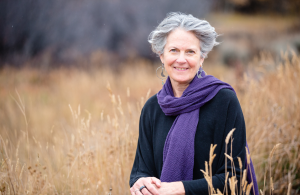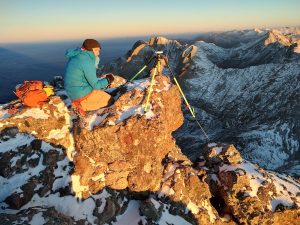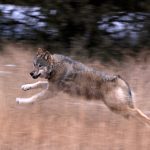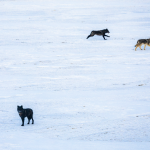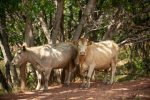Schneider: Opening our minds to Colorado’s wolves
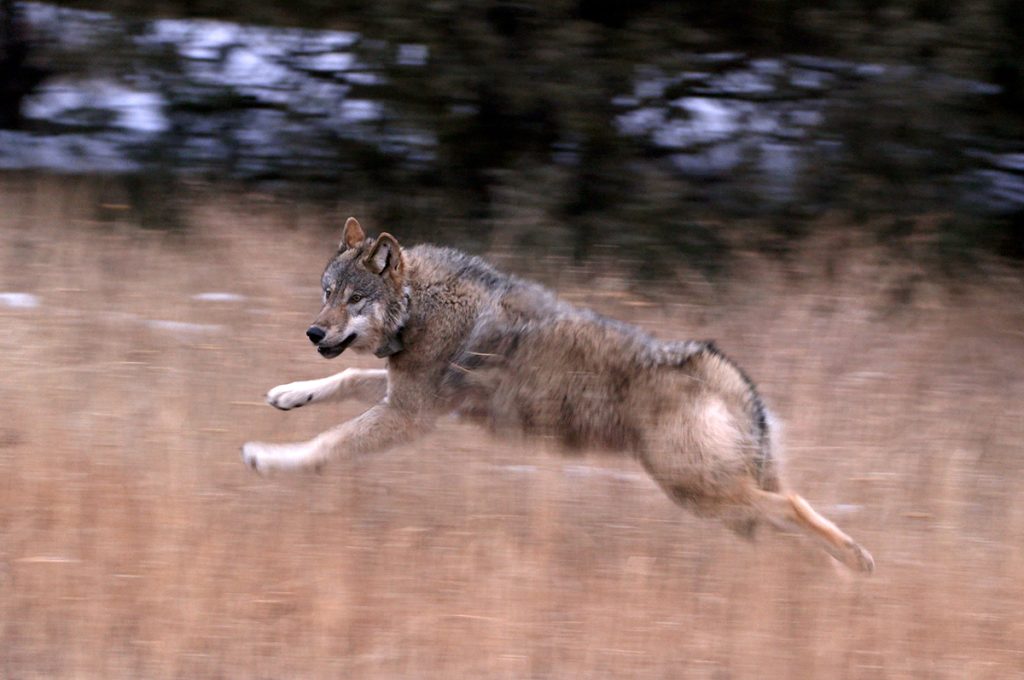
Colorado Parks and Wildlife/Courtesy photo
This year, Wolf Awareness Week arrives at a time when dozens of wolves are forming packs, raising pups and moving through Colorado’s landscapes for the first time in 80 years. This moment asks something of us: to set aside what we think we know and look clearly at what’s unfolding. Not with blind enthusiasm. Not with predetermined opposition. But with the kind of honest curiosity that creates space for something new and better.
Wolf Awareness Week was established in 1996 by Defenders of Wildlife to spotlight the ecological importance of wolves and challenge the persistent myths that have fueled their persecution. It’s a moment to reflect, not just on the progress we’ve made in wolf recovery, but also on the responsibility we share in ensuring these animals have a future in the Southern Rockies.
Colorado’s reintroduction of wolves is something for which we should all be proud. Wolves once roamed across the state until they were eradicated by humans in the 1940s. That short-sighted decision disrupted a complex ecosystem that depends on predators to be resilient. As a state, we are supporting the return of a native, endangered animal to some of the best habitat they have left in the West. Since December 2023, Colorado Parks and Wildlife successfully released 25 wolves to the Western Slope, and we already have four breeding packs as a result. That’s not just a win for wolves; it’s a bold statement about the kind of state we want to live in, one where we embrace our role as stewards of a wild and healthy landscape.
Wolves also carry extraordinary cultural weight. They appear in our folklore, our hopes, our fears and our conservation success stories. Yet, beneath the symbolism — both positive and negative — live real animals navigating real landscapes alongside real communities.
Understandably, there are concerns about how wolves and livestock can share the landscape. What if, instead of dismissing these concerns or letting them dominate the entire conversation, we use this week to explore how Coloradans can meet this moment to support both ranchers and wolves? Colorado has always been a place of innovation and home to some of the best wildlife professionals in the country. We have what it takes to make this work.
Decades of work on-the-ground tells us that non-lethal coexistence tools make a huge difference for ranchers when used proactively, collaboratively, and correctly. Since 2002, Defenders of Wildlife has worked alongside ranchers to implement practical, evidence-based approaches like range riders, specialized fencing, and sound or visual scare devices. In fact, none of the ranchers we’ve worked with in Colorado since the reintroduction began have experienced livestock losses to wolves while these tools or strategies were in place. These aren’t lucky outcomes; they’re the product of collaboration between people who know the land, wildlife professionals who understand wolf behavior, and a shared commitment to finding solutions that work.
Rather than rehashing familiar debates, Wolf Awareness Week offers us something more valuable: an invitation to learn, reconsider, and perhaps discover that our relationship with these animals is nuanced. This week, I encourage Coloradans to engage with curiosity rather than certainty. Listen to perspectives different from your own, and really listen, without planning your counter argument. Talk to biologists, ranchers, and wolf advocates. Notice your own assumptions and where they are rooted.
We don’t all need to agree about wolves, but we might find common ground in wanting Colorado’s landscapes, wildlife, and communities to thrive. That shared goal requires us to move beyond trenched positions and to change the way we are showing up to the table — with curiosity instead of fear, with creativity instead of ideology, and with genuine respect for both wildlife and the people sharing the landscape. Wolf Awareness Week isn’t about choosing sides. It’s about choosing to learn, to question, to imagine new possibilities for coexistence.
That seems like awareness worth cultivating.
